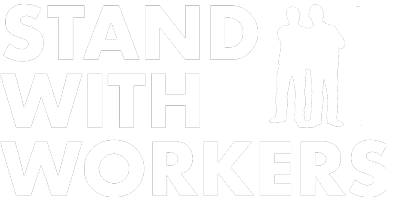By Pat Hughes | Liberty Justice Center
The United States Supreme Court has just delivered the biggest victory for workers’ rights in a generation. The case is Janus v. AFSCME. The plaintiff is Mark Janus, a child-support specialist who works for the state of Illinois. And I’m proud that the litigation firm of which I am president, the Liberty Justice Center, represented Mark in this landmark case.
Soon after Mark began working in state government, he noticed that money was coming out of his paychecks and going to a union, AFSCME Council 31 – even though he wasn’t a member of that union and no one had ever asked him if he wanted to give money to it. Then he found out had no choice in the matter.
That’s because Illinois is one of 22 states with a law on the books authorizing the government to force workers to pay union fees just to keep their jobs. Nationwide, these laws have compelled about 5 million public-sector workers to give part of each paycheck to a union, whether they wanted to or not.
But with this ruling, that practice ends.
The court recognized that the business of public sector unions is politics. That’s what AFSCME and other government unions are all about. They are political organizations whose primary mission is to grow the size and cost of government. So when workers give money to a public sector union, it goes to their political agenda.
With this ruling, unions still have the right to lobby for this agenda. But because of this ruling, government unions no longer have the right to force workers to give them money if they don’t want to.
The court was right to side with Mark Janus in this case. In its decision, the court affirmed that the First Amendment protects every individual’s right to choose which private organizations they will and won’t support with their money. It declared that a person shouldn’t have to give up that right just because he or she wants to advocate for children in child-support cases, be a firefighter, or teach in a public school.
As a result of this decision, all government workers across the country are now free to choose which groups they will and won’t support with their money. In other words, Americans who work in government now have the same First Amendment rights as everyone else.
And these workers stand to benefit from the court’s decision in another way. Until now, government unions in states with mandatory fees have had little incentive to listen to the people they supposedly represent. Why bother if the fees are mandatory? Now that workers have a choice whether they want to support the union or not, the unions will have to earn their support – like almost every other private organization in America.
Government unions have complained that a decision in Mark Janus’ favor will somehow hamper their ability to represent workers, but that’s not true. Government workers who want to be part of a union still can; that hasn’t changed. Government unions can still organize and represent workers and advocate for the things they believe in, just as they always have. Only one thing will be different: from now on, the unions will have to do those things using money that people give them voluntarily.
The truth is, Janus v. AFSCME simply puts each worker in control of how to spend their money. It gives workers a choice and a voice when it comes to unions in their workplace. That’s something everyone who claims to champion workers’ rights should celebrate.
Pat Hughes is president of the Liberty Justice Center, which represented Mark Janus in the Supreme Court case Janus v. AFSCME together with co-counsel from the National Right to Work Legal Defense Foundation.

